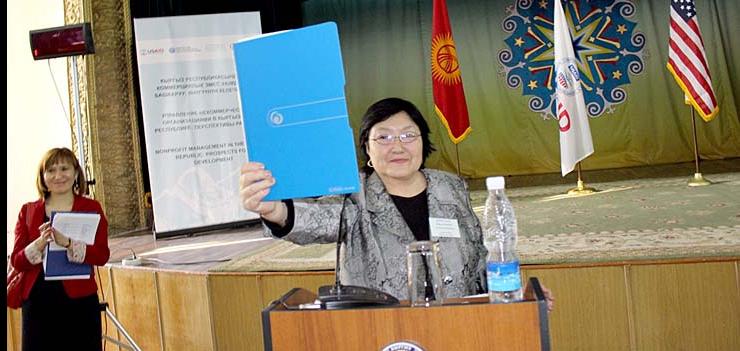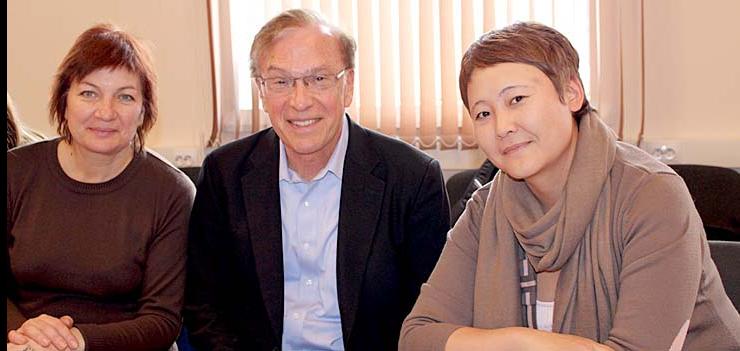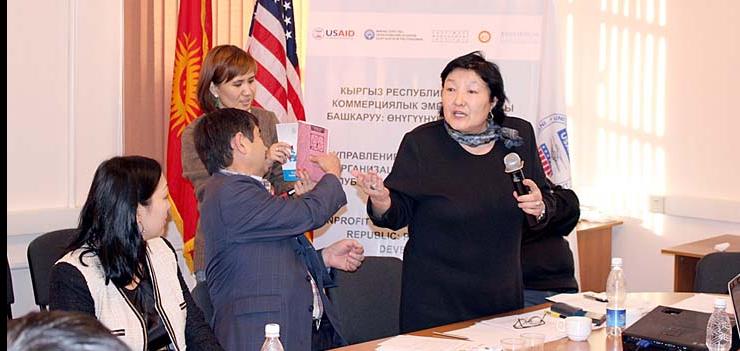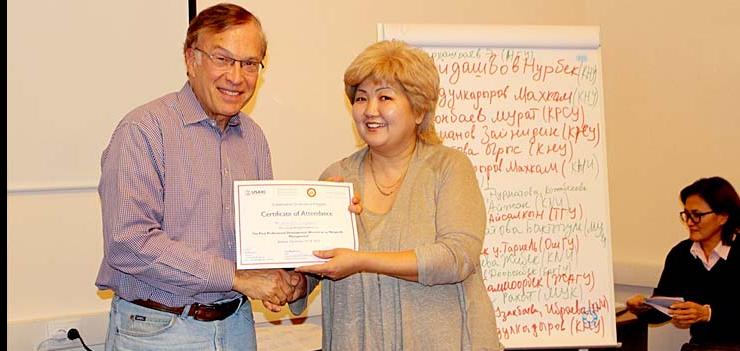Today the global civil society sector is widely recognized as a major economic force. In a national study carried out by the Kyrgyz national Statistical Committee, in conjunction with Johns Hopkins University and the United Nations Volunteers Program in the Kyrgyz Republic, 2.3% of GDP and 3% of the workforce in Kyrgyzstan is comprised of the civil society sector. Furthermore, the research indicates that Kyrgyz civil society organizations that are nationally funded derive 85% of their income from fees for services, contributing to the organizations’ sustainability. This demonstrates the establishment of the civil society sector as a significant source of potential in the country.
The civil society sector can also serve as a collaborator and facilitator for the government in the provision of public goods and services. However making this partnership thrive requires joint will, a supportive policy and legal environment, and a sophisticated workforce that can manage the complex funding and operational management these organizational partnerships require. In an effort to strengthen the civil society sector in Kyrgyzstan by developing a workforce of professional leaders, East-West Management Institute (EWMI) assisted in establishing a Consortium of Universities on Nonprofit Management spearheaded by Kyrgyz National University. The Consortium will work to improve existing nonprofit management (NPM) courses, establish new career-track courses, and enhance academic capabilities and resources for NPM studies in Kyrgyzstan. Ongoing collaboration with civil society leaders will also be critical to ensure that new courses meet real world needs.
In December 2013, 27 faculty members from 16 public and private Consortium member universities gathered to participate in the first in a series of professional development workshops facilitated by EWMI’s Collaborative Governance Program (CGP) and Johns Hopkins University’s (JHU) Center for Civil Society Studies. The workshop was the key activity during a five day field visit by Professor Lester Salamon and two other JHU experts who actively engaged faculty and students in discussions about global trends and innovation in NPM and NPM studies, and the favorable shift in perception about the economic and social value of the nonprofit sector. The JHU team offered various lectures on NPM to a total of 55 CSOs, 19 faculty members, and 139 students from Osh and Bishkek.
In conjunction with the official launching ceremony for the Consortium of Universities on NPM , Kyrgyz National University launched its Nonprofit Resource Center, supported by EWMI’s CGP. The Center will coordinate the Consortium’s activities and will provide online and other resources to advance NPM studies in the Kyrgy Republic.. The JHU team also offered various lectures on NPM to a total of 55 CSOs, 19 faculty members, and 139 students from Osh and Bishkek.
An initial Introduction to the Nonprofit Sector and Nonprofit Management course should be ready for the classroom at a number of Kyrgyz universities by the fall of 2014. Universities in the Consortium will then have the option to develop additional courses on specific topics – such as nonprofit law, financial management, or advocacy – to be offered in subsequent semesters. As a result of EWMI’s work, within four years, core courses in nonprofit management should be offered as a minor track at Kyrgyz National University and ideally in at least two other locations throughout the country.
Their plan is ambitious, but the confluence of motivated faculty, supportive rectors, and a vibrant and receptive NGO community bode well for their anticipated successes.




